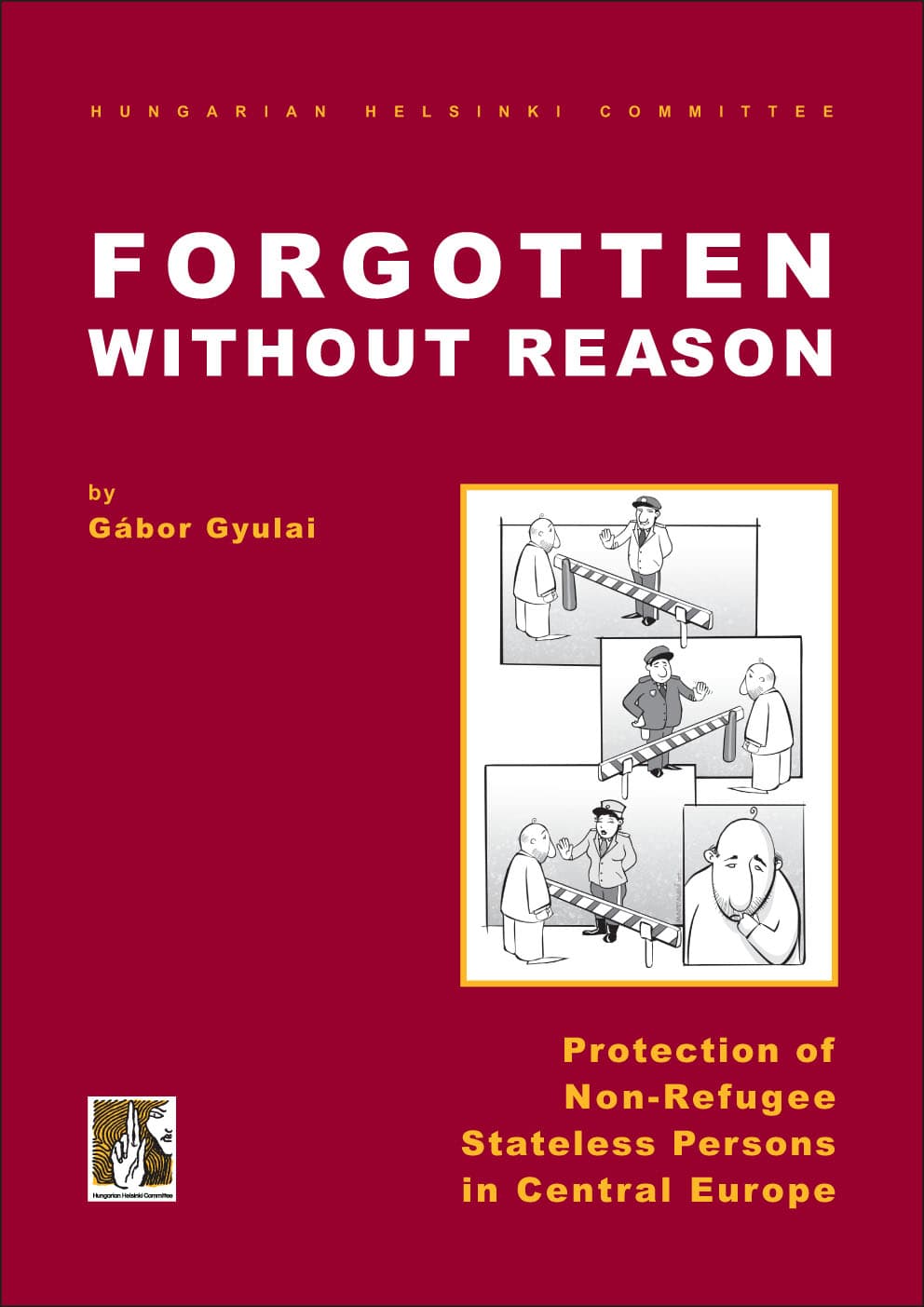Forgotten without Reason – Protection of Non-Refugee Stateless Persons in Central Europe (2007)
Author: Gábor Gyulai
Hungarian Helsinki Committee, Budapest, 2007
Despite the recent creation of a protection regime for refugees in Central Europe, a group with very similar needs and characteristics has been unjustifiably overlooked. Current protection regimes available for non-refugee stateless persons in Hungary, Poland, Slovakia and Slovenia are characterised by serious gaps and an attitude which considers this issue to be of secondary importance and associates it, at best, with subsidiary and temporary forms of protection. On the other hand, good practice examples are also present in the four countries in some particular aspects, and recently positive developments have also been witnessed.
Before presenting the results of its analysis of individual country practices, this report provides an overview of the relevant international legal context, pointing out both binding provisions and non-binding recommendations applicable for the four countries in question.
Firstly, the analysis deals with the existing mechanisms through which non-refugee stateless persons are identified by states and may be given access to a protection status. With a recent amendment, Hungary is the first country in the region to adopt separate and detailed legislation on statelessness determination, which not only elaborates procedural criteria, but also creates – as a highly progressive measure – a separate legal identity and protection status for stateless persons. Non-refugee stateless persons may have access to subsidiary forms of protection in Poland and Slovakia, without any specific procedural provision or guidance relating to them. Access to protection status has been found to be extremely difficult in Poland and is practically non-existent in Slovenia.
Secondly, the study analyses the protection status and social rights granted to non-refugee stateless persons. Among the three countries offering protection for this group, Poland is interestingly the closest to meeting the standards set by the 1954 Statelessness Convention, to which it is not party. It is of particular concern that non-refugee stateless persons are excluded from the labour market and are practically precluded from obtaining a passport and long term residence in Slovakia. The low standard of treatment of stateless persons in Hungary, with respect to social benefits and public relief, is also worrisome.
At last, the report touches upon the issue of “durable solution”, i.e. the facilitated access to a new nationality. While Slovakia sets the most preferable standards in this respect, the cumulative effect of very strict conditions and a complete lack of any appeal or review mechanism in Hungary gives rise to particular concerns.
Based on these findings, the author offers a set of recommendations for the government of Hungary, Poland, Slovakia and Slovenia, with a particular emphasis on relevant international legal obligations, as well as practical aspects and feasibility.
